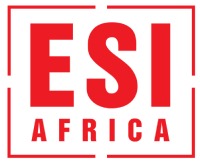Clean cooking drive across Kenya, Uganda and Zambia
Tens of thousands of households across Kenya, Uganda and Zambia are set to have access to electric induction cookers under a new clean cooking programme.
The African Development Bank (AfDB), via its Sustainable Energy Fund for Africa (SEFA), has awarded a $4 million reimbursable grant to support the Burn Electric Cooking Expansion Programme (BEEP).
This initiative aims to distribute 115,000 Burn ECOA electric induction cookers to low‑income, grid‑connected households reliant on charcoal in Kenya, Uganda and Zambia.
The programme is spearheaded by Kenya‑based Burn Manufacturing Company, a clean cookstove firm active in more than ten African markets.
BEEP is financed via a Special Purpose Vehicle (SPV), pooling a $5 million senior loan from Spark+ Africa Fund, the $4 million SEFA grant and $1 million equity from Burn.
Carbon finance transaction a first for AfDB
Households will receive the IoT-enabled induction stoves via pay-as-you-cook plans, with repayment facilitated through voluntary carbon credit sales.
Revenues generated belong to the SPV and are shared with investors.
Daniel Schroth, AfDB’s Director for Renewable Energy and Energy Efficiency, said this marks the Bank’s first carbon finance transaction of its kind, “with SEFA playing a critical role in mitigating carbon market risks and enhancing the programme’s financial sustainability.”
The initiative supports SEFA’s energy efficiency mandate and aligns with the Bank’s Mission 300 Initiative and the New Deal on Energy for Africa, both targeting universal energy access via low-carbon solutions.
A billion Africans rely on polluting fuels to cook
Nearly four in five African households – about a billion people – continue to rely on polluting fuels such as charcoal, wood and dung for cooking, research by the International Energy Agency (IEA) shows.
These practices cause more than 800,000 premature deaths each year, predominantly affecting women and children, and contribute to deforestation and climate emissions.
The IEA released a roadmap recently, indicating that universal access to clean cooking in Africa by 2040 is achievable via existing technologies.
Full implementation could prevent 4.7 million premature deaths, create approximately 460,000 jobs, and eliminate 540 million tonnes of CO₂ emissions annually.
Fatih Birol, Executive Director of the IEA, said that a lack of clean cooking access remains one of the great injustices in the world.
“This problem is solvable with existing technologies… and would cost less than 0.1 percent of total global energy investment,” he said.
However, progress remains slow: under current policies, clean cooking access in Sub-Saharan Africa is projected to rise from 23% today to 62% by 2050, falling short of the UN’s SDG7 target of universal access by 2030.
Burn’s CEO, Peter Scott, welcomed SEFA’s catalytic investment.
“This milestone enables Burn to rapidly scale our IoT‑enabled induction stove across Kenya, Uganda, and Zambia, providing low‑income households with a zero‑emission, digitally monitored alternative to charcoal and wood.”
Socio-economic gains through clean cooking
Beyond environmental and health benefits, BEEP is expected to stimulate job creation, strengthen local supply chains and reinforce grid-based clean cooking markets in the three countries.
The initiative offers a replicable model, combining digital monitoring, carbon finance and flexible payment systems – signalling a potential turning point for clean cooking in Africa.
BEEP joins global momentum catalysed at the 2024 Clean Cooking Summit in Paris, where more than $2.2 billion in commitments were pledged.
Cover photo: gioiaphoto©123rf



